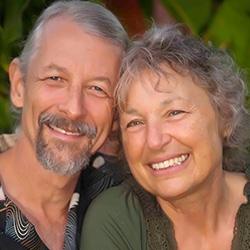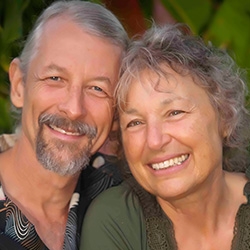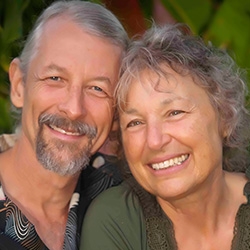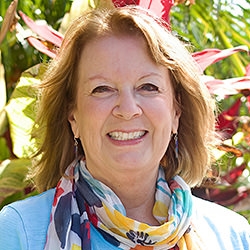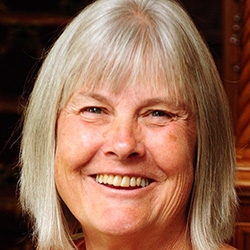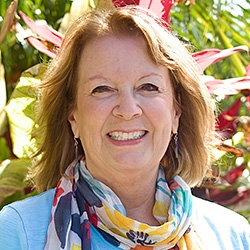
Search Results: emotions
-
As you witness injustices in the world, tension, anger, hopelessness, despair and more, may rise up in you. These feelings may lead to reactive thinking that doesn't contribute to healing nor wise action. Mourning is a universal need. If your culture pushed away grief and its emotional expression, you may have habits that block your access to the aliveness of grief. Read on for ways to give grief the space and support it needs.
-
To shift reactivity by moving yourself from the position of experiencer to observer, name what’s happening. This can help you access other skills for managing reactivity. Also, create a strong emotional anchor.
-
When you don't have a sense of being heard you can apply skills to help you can interrupt cycles of reactivity and resentment, and create connection. Let's look at six ways that will support you in being heard. These are clarity about the topic and needs; supportive conditions; respect for autonomy; sharing your intention; attending to emotional security; and making clear requests.
-
There's a danger in using empathy exchange to perpetually recirculate and exchange pain (often by telling and re-telling the same old stories), rather than using it as a catalyst for transformation. It can create and further pain in whatever form: anger, destructiveness, hatred, grief, emotional drama, and violence. It can also reinforce dualistic evaluations of "met" vs "unmet" needs. And it can slow down productivity.
-
In this intriguing audio, Jim and Jori Manske create a framework for growing your feeling awareness, and offer daily practices for working with your feelings. Listen to this audio if you’d like to expand your emotional vocabulary!
-
Ask the Trainer: "I have noticed that sometimes when I am in a story-telling mood I am usually trying to prove that I am right and once I connect with a need the urge to give all the information goes away."
-
This audio training with expert trainer Rita Herzog explores the NVC alternative to family relationships: stay grounded in your own needs and values so you are able to reach out with empathy to family members.
-
In this inspiring audio, Kelly Bryson, veteran CNVC Certified Trainer and author of many NVC books and articles, explores the importance of setting a clear intention and then clarifies the difference between pain and suffering.
-
John Kinyon leads participants through two Observation Exercises to strengthen their ability to be present. Through the exercises, John distinguishes the difference between feelings, which are emotions felt inside the body, and observations which are witness to our experience.
-
Ask the Trainer: "In trainings I say our jackals are thoughts and now I've come to wonder if all thoughts are jackals...?"
-
Join veteran Mediators and Facilitators, Jori and Jim Manske in using Nonviolent Communication and mediation skills for transforming conflict into connection between yourself and others.
-
John and Stephanie combine mediating conflict, parenting and study of brain science to this ground-breaking course recording on how to funnel your anger and your child’s anger toward mutual caring and peace.
-
Join CNVC Certified Trainers and Mediators Jori and Jim Manske in an exploration of using Nonviolent Communication in the context of Mediation and Conflict Resolution.
-
Less than 2 weeks ago from the time I’m writing this letter, Hamas militants crossed from Gaza into Israel and killed more than 1,300 people, most of them civilians. Israel then retaliated and killed over 3,000 Gazans, most of them civilians. The death rate continues to increase every day.
-
In our internal conversations, some voices dominate others, which can leave us feeling fragmented or overwhelmed. But when we dive beneath the surface and really listen to our many parts, we connect vulnerably to our full humanity.
-
Misunderstandings can be painful. We can easily avoid this by checking what the other person understood from what we said, and ask the other person to do the same. Doing this is especially important when it comes to planning, shared decision-making, and when emotions are strong. Also, the more someone knows you, the more they think they already know what you mean -- which can get in the way of really hearing you. Here are a variety of ways to approach this simple strategy.
-
It’s essential to give ourselves time to grapple with the complex feelings surrounding the brutality of state-sanctioned racism and violence. But if all we do is reflect and attend to our emotions we fail to show up, where and when it counts. So let's not perpetuate the violence by standing idly. Instead, here's ten things you can do to move into concrete action to address the continued, untenable, and horrific violence of racism. A list of resources is included.
-
Trainer tip: Feelings of hurt, anger, fear, and resentment can often sound alike. Fear and excitement have the same physiological effects on us, and are often expressed in the same body language. Clearly and specifically naming our emotions and the intensity level can help us resolve conflicts, with a much greater opportunity to get our needs met.
-
Trainer Tip: NVC-based social change naturally emerges from “a certain kind of spirituality”, a quality of spiritual clarity. Intuitions and impulses arising from spiritual clarity are more likely to support sustainable systems. Read on for how to bring more of this in, and ways to transform your complaint into commitment.
-
Grow your compassionate presence with this 3-process exercise. The processes include: Connecting to and feeling the Life Impulse meditation, Creating your own inner space of compassionate presence exercise, and the Compassionately Embracing visualization. These processes will guide you toward deeper self connection and compassionate presence.





